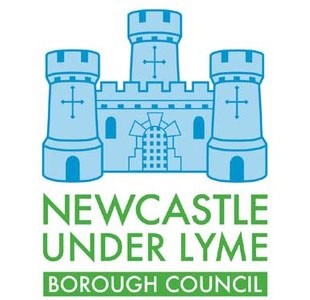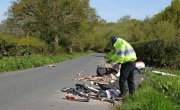Newcastle to ‘simplify’ and bring waste collection in house
 Newcastle-under-Lyme Borough Council is to spend just under £2.5 million adapting its kerbside collection system, currently considered the most complicated in the UK.
Newcastle-under-Lyme Borough Council is to spend just under £2.5 million adapting its kerbside collection system, currently considered the most complicated in the UK.
After consultation with residents, the council is opting to adapt its kerbside collection system, which currently asks residents to use seven different boxes and bags to recycle different materials with a further bin for residual waste, at the end of its current collection contract with Acumen Distribution in July 2016.
Following this date, it says it will implement the changes to coincide with the service being taken in house, becoming the latest local authority to take control of its own waste services. This, it says, will help the council to focus on recycling and composting rather than incineration and landfill, and to hit its target of 55 per cent recycling by 2020.
The council currently recycles 52.6 per cent of its municipal waste, but estimates that under the new system the rate could rise as high as 60 per cent by 2020.
The changes, which the council hopes will lead to savings of £500,000 a year, will see collection timetable changes and fewer receptacles for residents to sort recyclables into, with council operatives instead sorting at the kerbside.
Materials currently collected in bags will instead be put in two new boxes. Providing these for the 54,000 homes that use the service is expected to cost around £495,000.
A further £1.5 million will be spent replacing the council’s refuse vehicles, while more than £460,000 will be invested in the Knutton Lane depot, developing a new layout to enable the new service to operate safely.
‘The most complicated collection system in the UK’
The current system requires residents to sort their waste into eight separate containers for kerbside collection, operating as an alternate weekly collection service.
One week is ‘green’ week in which, using three different collection vehicles, food waste is collected from a small 25-litre bin, garden waste is collected from a 240-litre brown wheelie bin and residual waste is collected from a 180-litre black wheelie bin.
The following week is then designated ‘blue’ week, taking dry recycling and another batch of food waste using two vehicles. Cardboard is left in a green reusable bag, plastic bottles in a red one-use sack, paper and magazines in a reusable blue bag, mixed glass, tins and foil in a blue box and finally textiles in a white and red sack.
This service was first implemented in 2010, contributing to, according to council figures, a rise in the recycling rate from 27 per cent in 2009 to 51 per cent in 2012, as well as a reduction in residual waste of over 35 per cent.
Changes to the system
After consultation with residents, the council has adapted this system to coincide with the end of the council’s current contracts in July 2016. It says the new service will ‘make the system simpler, but maintain a high-quality service’.
The changes being made will see the alternative weekly collections replaced by weekly dry recyclables and food waste collection, with fortnightly collection of residual and garden waste.
Three 55-litre boxes will be used to collect paper, small electrical appliances and textiles; card and glass; and plastic bottles and cans, with a caddy for food waste. These will then be collected over a single vehicle pass.
Garden and residual waste will also be collected from bins with a standard collection vehicle.
Under the current system, five different vehicles are used to collect nine different materials, with each one chosen for the material being collected and its destination.
However, the council says that the design of the new service and the fact the collections are being brought in-house means that only two vehicles are now needed for garden and residual collections, with multi-material kerbside collection vehicles being used for all dry recycling and food waste streams.
A new transfer and baling facility is being developed as part of the long-term waste strategy, which the council says will bring all operations together and ‘enable the council to be responsible to the collection and onwards sale of the high-quality baled material’.
Changes present ‘big improvement’ on current system
At the council’s cabinet meeting on Wednesday (16 September), Councillor Tony Kearon said: “This is a complex piece of work, but I've been talking to a number of residents and there's an overwhelming sense that this is going to be a big improvement on the current system. I think it’s a brilliant development, it’s going to save us money and improve service.”
Councillor Terry Turner added: “A lot of hard work has gone into this and it will make a substantial difference to our revenue budget.”
Learn more about the current kerbside sort system in Newcastle-under-Lyme.






